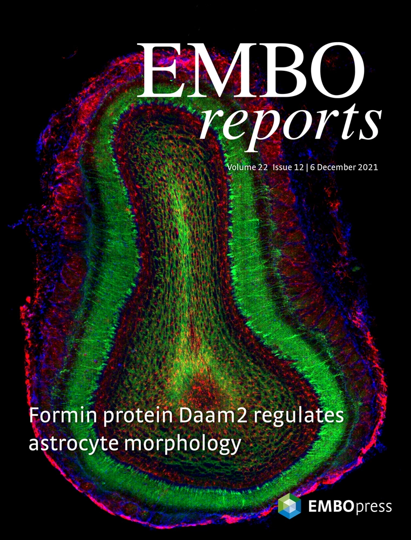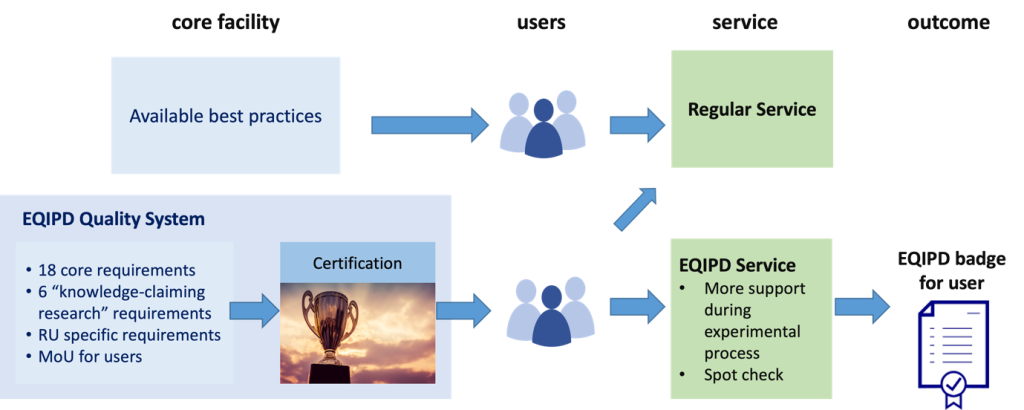
Core Facilities (CFs) are a major player within the research landscape since they provide essential infrastructures, experimental support and knowledge to scientists and research groups. Additionally, CFs are dedicated to increase quality practices by setting their own standards and providing training to users performing experiments in their facility (Kos et al., 2020). However, members of CFs often face the challenge to provide an incentive for users to adhere to research quality standards.
To tackle this issue and using an iterative process, an EQIPD working group consisting of members from CFs has now established a Memorandum of Understanding (MoU) and has developed a strategy to incentivize adherence to the MoU. This concept was recently published in EMBO reports.
Briefly, the MoU addresses “quality aspects” for users to adhere to when performing CF-relevant experiments. These aspects reach from participating in training over study design requirements to review and reporting. The MoU will be shared with users to provide guidance and can also be used as a checklist to increase data integrity.
As shown in the Figure below, the user can choose between two types of services, the “Regular Service” and the “EQIPD Service”. The “Regular Service” can be offered by any core facility, whereas the “EQIPD Service” will be offered by facilities which are EQIPD-certified. If the user agrees, CFs will take on additional responsibilities to support the users when conducting experiments and perform spot checks to see whether users adhere to the MoU. If that is the case, the users will be eligible to receive the “EQIPD badge”, demonstrating that all pre-defined research quality standards were respected. This badge could be a handle to promote adherence to best practices.
We understand that this strategy also comes with several hurdles to be taken, since this might often be connected to the availability of resources. However, we also believe that a closer interaction between users and CF members will increase data quality and free up time since errors can be avoided.
If you are interested in the concept or would like to discuss the model in more detail, please sent an Email to bjoern.gerlach@paasp.net.

0 Comments
Leave A Comment